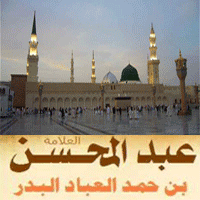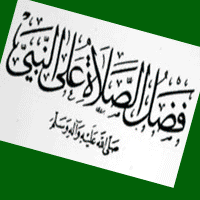His Guidance
a. His Guidance in Relieving Oneself
When entering the toilet he (peace be upun him) would say:
“O Allah, I seek refuge with you from evil and evil ones."
And upon coming out he (peace be upun him) would say: “I seek Your forgiveness.”
He (peace be upun him) usually urinated while squatting.
He (peace be upun him) sometimes cleaned himself with water, sometimes with stones and sometimes used both.
He (peace be upun him) used his left hand to clean himself.
He (peace be upun him) would call out the adhaan with or without repetition. He (peace be upun him) also pronounced the words of the iqaamah once or twice, except that he always repeated the words “Qad qamat is-salaah” (Prayer has begun) twice.
He (peace be upun him) ruled for his people that one who hears the adhaan should repeat the words after him, except for the words “Hayya `alas-salaah" and "Hayya `alal-falaah”, where one should say “La hawla wa la quwwata illa billaah." (There is no might and no power except through Allah.”
a. His Guidance in Beginning and Recitation
When he (peace be upun him) began prayer, he would say: "Allahu akbar" (Allah is most great). He (peace be upun him) would not say anything before that and never pronounced the intention (niyyah).
He (peace be upun him) would raise his hands to the earlobes or shoulders with his fingers straight, facing the Qiblah, and then place his right hand over the back of his left.
From his guidance was to honour Friday and the Friday (Jumu`ah) prayer, designating to it particular practices such as taking a bath, wearing one's best clothes, listening attentively to the sermon and frequently invoking blessings on the Prophet (peace be upun him).
He (peace be upun him) used to lead the Eid prayer at the musalla, wearing his best clothes.
At Eid al-Fitr, he ate an odd number of dates before heading for the musalla. But for Eid al-Adha he (peace be upun him) delayed eating until after the prayer, then he ate from his sacrifice. He would delay the Eid al-Fitr prayer and hold the Eid al-Adha prayer early.
He (peace be upun him) walked to the musalla carrying a pointed stick to be implanted in front of him as a sutrah in prayer.
When there was a solar eclipse Prophet Muhammad (peace be upun him) rushed anxiously to the mosque and performed two rak`ahs. In the first he recited al-Fatihah aloud, followed by a lengthy recitation of the Qur'an. Then he made a long ruku`. Then he stood up from ruku`, saying,
He (peace be upun him) used to supplicate Allah for rain on the pulpit while delivering the Friday sermon and he also prayed for rain on other days. And he also prayed for rain while sitting in the mosque, raising his hands and supplicating Allah, the Mighty and Majestic.
His supplications for rain include:
"Allaahumm-asqi `ibaadaka wa bahaa'imaka wanshur rahmataka wahyee baladakal-mayyit."
(O Allah, provide water for Your servants and your animals, spread Your mercy and revive your lifeless land.)
If the enemy was in the direction of the Qiblah, he (peace be upun him) arranged the worshipers in two rows behind him. He (peace be upun him) said "Allahu akbar" and they repeated after him. Then they all made ruku` and rose up from it together. For prostration, the front row behind him prostrated while the back row remained standing facing the enemy. When the Prophet stood up for the second rak`ah the back row would make two prostrations, get up and advance to take the place of the first row, which would move back to take their place.
&The guidance of the Prophet (peace be upun him) in funerals was complete, unlike that of other nations. It included good treatment of the deceased, his family and relatives. Such care begins as early as visiting the dying person during his illness, reminding him of the Hereafter, advising him to write his will and repent, and asking those beside him at his death bed to encourage him to recite the testimony, "La ilaaha ill-Allah" (There is no god but Allah), so it will be the last words uttered by him.
a. His Guidance in Zakah
His is the most perfect guidance in all aspects of zakah: its timing, amounts, percentages, givers and recipients. It takes into consideration the interests of both the wealthy and the poor, taking from the rich an amount sufficient to meet the needs of the poor without injustice.
If he (peace be upun him) knew that someone was entitled to zakah, he would give him, and if he did not know his condition he only gave him after informing him that the rich and those able to earn their livelihood were not entitled to zakah.
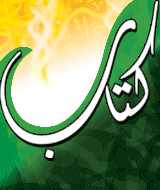

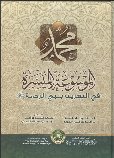

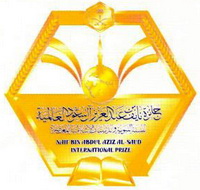

.jpg)
